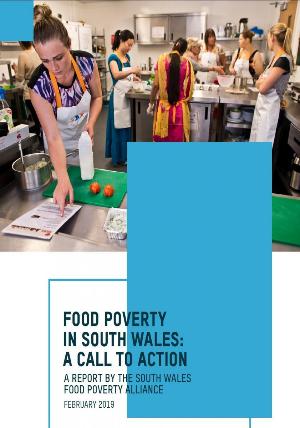
Today, Food Poverty in Wales: a call to action was launched by the South Wales Food Poverty Alliance (SWFPA).The report reveals the shocking extent of food poverty in Wales.
One fifth of people in Wales are worried about running out of food.
The report paints an alarming picture of the way in which it is affecting women, men and children, including a growing number of people in work. For a great many people living in our communities today, it is a struggle to put regular, healthy meals on the table.
The SWFPA, made up of organisations from across the region, mapped the landscape of food poverty, and make wide-ranging calls to action for Welsh Government, including:
- The need to measure food poverty, so we can understand the full extent of the problem, to then develop effective solutions and track progress;
- The need to ensure that all children in Wales are adequately fed and nourished, during term time and in the school holidays;
- The need to use all policy levers to ensure that employers in Wales pay the real Living Wage.
The report comes hot on the heels of a visit last autumn to the United Kingdom, including Wales, of the United Nations Special Rapporteur on extreme poverty and human rights Professor Phillip Alston. He was clear in his assessment:
Successive [UK] governments have brought revolutionary change in both the system for delivering minimum levels of fairness and social justice to the British people, and especially in the values underpinning it. Key elements of the post-war Beveridge social contract are being overturned. In the process, some good outcomes have certainly been achieved, but great misery has also been inflicted unnecessarily, especially on the working poor, on single mothers struggling against mighty odds, on people with disabilities who are already marginalized, and on millions of children who are being locked into a cycle of poverty from which most will have great difficulty escaping.
The statement of his UK visit, which can be accessed here, includes a section on Wales, in which he highlights that Wales still has the highest relative poverty rate in the UK.
The SWFPA report does not provide us with a silver bullet but is a call to action. It encourages us to integrate our efforts and to work together across private, public and third sectors in Wales towards more coordinated and effective interventions.
You can read the report here.